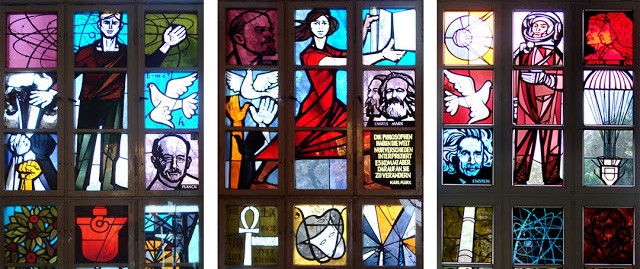Many Christians believe all people are made in the image of God. However, this belief is not so simple when you dive into church life and begin to look at how different people are treated based upon their unique physical and mental characteristics.
The study of what it means to be a creature with both a body and a soul teaches that as embodied creatures, all humans are subject to the inevitability of embodied life. Likewise, if all bodies and souls are unique, but all humans are made in the image of God, we must recognize that the diverse “image of God” exists within everyone and is not exclusive to any one standard.

Mallory Challis
Despite theologies that affirm diversity in the image of God, many churches still maintain gender and social hierarchies based upon who they view as closest to this image. Often in Baptist church life and polity, able-bodied, neurotypical men are viewed as the ones who are most like God both in image and in social roles.
We can see this when statements like the Southern Baptist Convention’s Baptist Faith and Message affirm the subordination of women in marriage because the leadership of a husband is comparable to the leadership of Christ. Statements like these, although they will not say it plainly, support the nuance that because men are the most like Christ, women must be less like Christ.
This teaches believers that men are made in a more similar image to God than women are, meaning men’s bodies, minds and spiritual lives are more important than women’s simply because we think they are like God in a way that we think women are not.
This view that women’s bodies are made less in the image of God also facilitates the marginalization of another group, persons with disabilities, because it sets a standard for how the image of God must look — devaluing bodies, minds and spiritual lives that deviate from that standard.
“These beliefs create a hierarchy of the image of God, in which able-bodied, neurotypical men are at the top.”
These beliefs create a hierarchy of the image of God, in which able-bodied, neurotypical men are at the top, women are below men as the caretakers of society, and disabled persons, who often are in need of necessary care and attention, are at the bottom because they both deviate from the standard image of God and often are in need of care.
However, this hierarchy denies the great spiritual gifts and contributions that both women and persons with disabilities can offer church life and refuses to acknowledge that as embodied persons made in the image of God, there should be no hierarchy in the first place.
The diversity of God’s church is what allows spiritual gifts to prosper. If every person in the church was an able-bodied, neurotypical man, we never would appreciate the loving bond of motherhood or be able to fully meditate over worshipful moments when persons with physical disabilities take a few seconds longer.
Although it may seem like this hierarchy is something tucked away in church doctrine, it is visible in everyday church life. Many churches do not allow women to be deacons and pastors despite their spiritual gifts. Most church stages or chancels do not accommodate wheelchair users, and church pews often are placed very close together, making it hard for wheelchair users, or any person who struggles with mobility, to sit comfortably.
“Most church stages or chancels do not accommodate wheelchair users.”
These seemingly small aspects of church life all stem from views of subordination, and they cause many churchgoers to feel unwelcomed or excluded by the church because their embodied presence and spiritual gifts are not properly appreciated.
What do we do about this? It is certainly a disservice to church life and theology to perpetuate this idea that able-bodied, neurotypical men are made most like God’s image. And to continuously keep women and persons with disabilities from experiencing faith in the same ways that others do is contrary to God’s love for the world.
As churchgoers, we must bring visibility to those who are marginalized and engage in conversations that affirm the diverse image of God that exists within all embodied persons to create a more inclusive and loving church environment, working toward the mutual edification of all God’s people.
Mallory Challis is a student at Wingate University, where she works in the office of Student Ministries. She is a religious studies major who is planning on pursuing a master of divinity degree as preparation for Christian Ministry.
Related articles:
As Americans with Disabilities Act turns 30, barriers remain
Educated and eager to work, but there’s just one barrier
Pastor counsels churches to greet disabled with compassion, not exclusion or fear
I knew the truth about women in the Bible, and I stayed silent | Opinion by Beth Allison Barr

